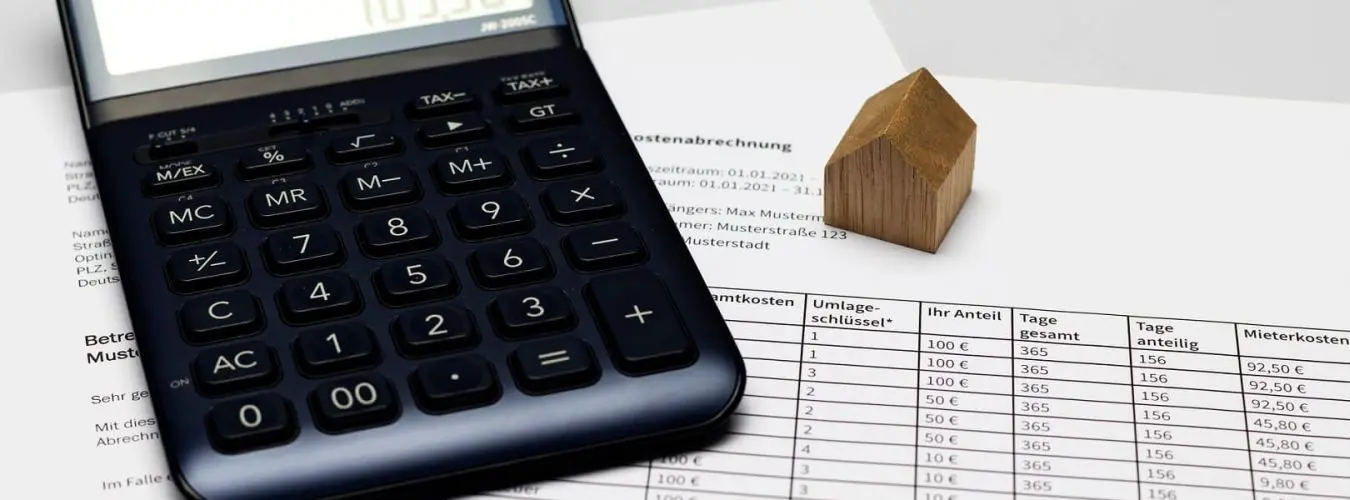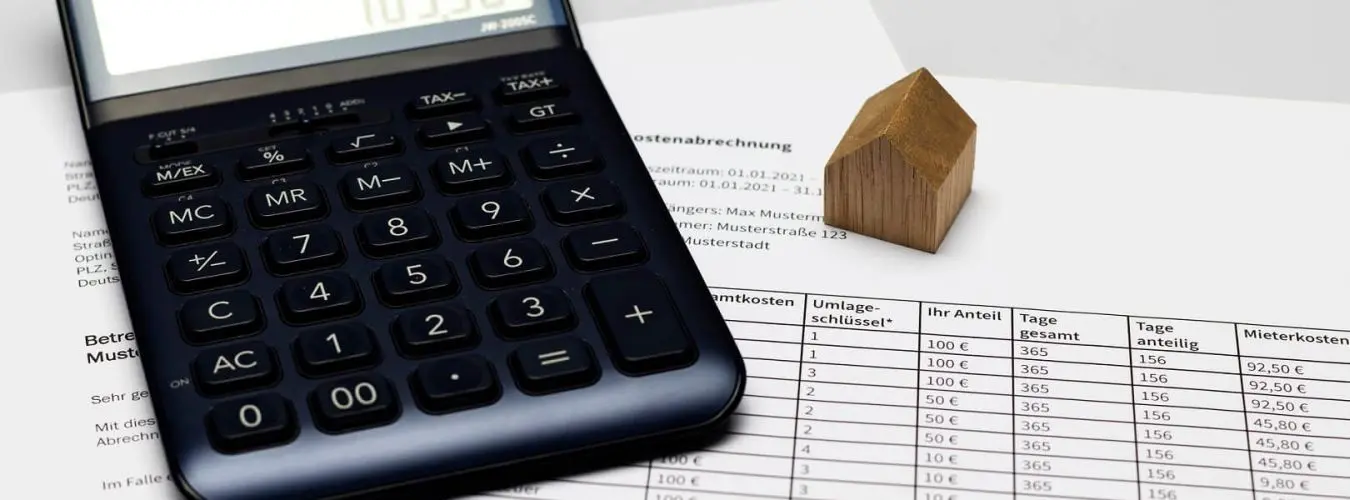The notice period for rental apartments is one of the central issues in tenancy law. Both tenants and landlords are bound by clear legal requirements, some of which vary greatly. This article provides a comprehensive overview - from the legal basis to special termination rights and important formal requirements.
The most important points summarized:
- Tenants: can give 3 months' notice regardless of the length of tenancy (Section 573c (1) BGB). There are exceptions for minimum rental periods.
- Landlords: may only give notice if there is a legitimate interest (personal use, breach of duty by the tenant or commercial exploitation). In these cases, the statutory notice periods depend on the length of the tenancy:
- up to 5 years: 3 months
- over 5 to 8 years: 6 months
- over 8 years: 9 months
- Special terminations: special rules apply in the event of a rent increase, modernization, death of the tenant or in a two-family house.
- Own use: only permitted with justifiable reasons, abuse leads to compensation.
- Blocking periods (§ 577a BGB): in many cities, protection against termination of up to 10 years applies in the event of conversion to ownership.
Overview of notice periods
The statutory notice periods in tenancy law differ significantly between tenants and landlords. The following overview shows the most important legal regulations.
Notice period for tenants
The situation is simple for tenants: according to Section 573c BGB, the notice period is three months regardless of the length of tenancy . There are exceptions for minimum rental periods.
Notice periods for landlords
Notice periods for landlords (only possible if there is a legitimate interest):
- up to 5 years: 3 months
- over 5 to 8 years: 6 months
- over 8 years: 9 months
This makes it clear: the longer a tenant lives in the apartment, the stronger their protection against termination.
Termination for personal use: Requirements and limits
Termination for personal use is the most common reason for termination on the part of the landlord. However, it is only effective if there is a comprehensible reason. Own use is permitted, for example, for the landlord himself, spouse or partner, children, grandchildren, parents or siblings. Personal use can also be claimed for care staff, provided there is a close personal relationship.
The decisive factor is the justification. A blanket statement such as "I need the apartment for a family member" is not sufficient. The landlord must explain in detail who exactly is to move in, why the previous living situation is not sufficient and why this particular apartment is needed. Otherwise, the termination may be invalid.
Abusive notices of termination for personal use can have serious consequences: The tenant may lodge an objection, demand compensation for relocation costs and, in extreme cases, even demand the return of the apartment if the alleged personal requirement is never realized.
Hardship regulation according to § 574 BGB
Even if there is a legal need for personal use, the tenant can object to the termination. The law provides for a hardship provision if it would be unreasonable for the tenant to move out. Examples include advanced age, serious illness, advanced pregnancy, a child's imminent graduation or a demonstrable lack of alternative accommodation. In such cases, courts often rule in favor of the tenant.

Special termination rights for tenants and landlords
In addition to the regular notice periods, tenancy law has a number of special regulations:
- Rent increase (Section 561 BGB): If the landlord increases the rent, tenants can give notice by the end of the second month after receipt, on the date on which the rent increase would take effect.
- Modernization (Section 555e BGB): If a modernization is announced, tenants may terminate the tenancy for cause by the end of the month following receipt of the notification.
- Death of the tenant (Section 580 BGB): If the tenant dies, heirs or landlords can give extraordinary notice of termination within one month of becoming aware of this.
- Two-family house (Section 573a BGB): Landlords who live in the house themselves and rent out a second apartment can give notice without giving a reason for termination. However, the notice period is extended by three months.
Blocking periods after conversion (§ 577a BGB)
Particularly strong protection applies when rental apartments are converted into owner-occupied apartments. In this case, a notice of termination for personal use may not be issued immediately. According to Section 577a BGB, a lock-up period of at least three years applies. In many cities with a tight housing market, the federal states have even extended this period to up to ten years. This is intended to prevent tenants from being displaced in the short term as soon as apartments are privatized.
Form and delivery: what to look out for
A notice of termination must always be in writing and signed by hand. Email, fax or WhatsApp are invalid. Delivery by registered letter with acknowledgement of receipt or by a messenger is recommended.
The third working day rule is particularly important: in order for the notice period to begin with the current month, the letter must be received by the contractual partner on the third working day of this month at the latest.
Practical checklist for tenants
- Write the letter of termination with sender, address and date
- Subject: "Termination of the tenancy agreement for [address]"
- Include reference to the statutory notice period of three months
- handwritten signature of all contracting parties
- Ensure delivery by registered mail or courier
Tip: A sample letter makes it easier to give formal notice of termination and helps to avoid mistakes.
When does a tenant have to move out after giving notice?
After a tenancy has been terminated, the tenant must generally move out of the apartment by the end of the notice period stated in the termination letter. In Germany, the notice period for open-ended tenancy agreements is usually based on the statutory regulations in the German Civil Code (BGB):
- In the case of termination by the landlord (only possible if there is a legitimate interest), the notice period is based on the length of the lease (Section 573c BGB).
- In the case of termination by the tenant, the notice period is normally three months (Section 573c BGB). There are exceptions for minimum rental periods.
The exact date by which the tenant must move out is the last day of the notice period.
Important points:
- The notice period always begins when the tenant receives the notice of termination.
- If the tenant does not move out on time, the landlord can file an action for eviction.
- In the case of an extraordinary termination (without notice), the tenant must move out immediately, at the latest within the period specified in the termination letter.
Example:
If the notice of termination is received by the tenant on April 1 and a notice period of 3 months applies, the tenant must move out by June 30 at the latest.
How do you write a termination notice as a landlord?
As a landlord, you must observe certain formal and legal requirements when giving notice. Here are the most important steps:
Formal requirements
- Written form: The notice of termination must be in writing (handwritten, signed letter).
- Observe deadlines: The statutory notice periods depend on the length of the tenancy:
- up to 5 years: 3 months
- over 5 to 8 years: 6 months
- over 8 years: 9 months
- Termination: Only possible if there is a legitimate interest (personal use, breach of duty by the tenant or economic exploitation).
- State the reason for termination
Contents of the termination letter
- Names and addresses of landlord and tenant.
- Date of the letter.
- Specific details of the terminated apartment (address, rental agreement date).
- Termination date (e.g. "to 30.11.2024").
- Reasons with proof (e.g. reminders in the event of loss of rent).
- Reference to the return of the apartment (handover of keys, handover protocol).
Delivery
By registered letter with acknowledgement of receipt or in person against confirmation of receipt.
Sample text (example)
"Dear [name of tenant],
I hereby terminate the tenancy agreement dated [date] for the apartment [address] with effect from [termination date].
The termination is due to [e.g. e.g. repeated default of payment pursuant to Section 543 (2) No. 3 BGB / personal use pursuant to Section 573 (2) No. 2 BGB].
I enclose [e.g. copies of the reminder letters / proof of personal use] as proof. Please hand over the apartment vacated and swept clean by [date].
Yours sincerely,
[Your name/landlord]."
Important:
- Legal advice in case of uncertainty (e.g. from a lawyer or tenants' association).
- State law may differ (e.g. in Berlin for personal use).
Conclusion
The notice period for apartments is clearly regulated - simple for tenants, more complex for landlords. While tenants can give three months' notice at any time (with the exception of the minimum rental period), landlords must have a legitimate interest and observe staggered notice periods and stricter requirements. Termination for personal use and numerous special regulations are particularly important. Anyone giving or receiving notice of termination should therefore carefully check deadlines, formal requirements and hardship regulations.

































